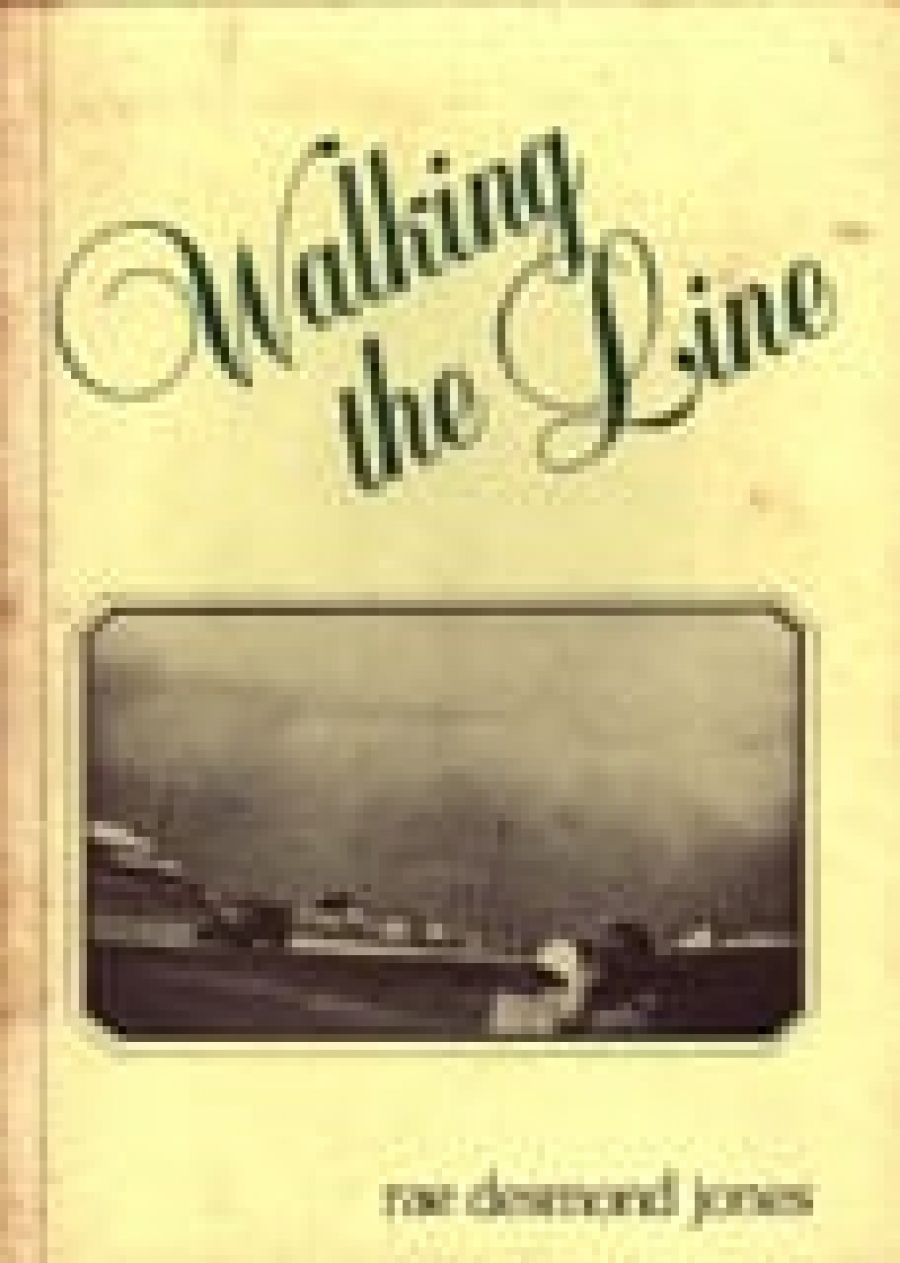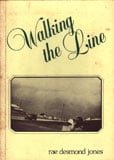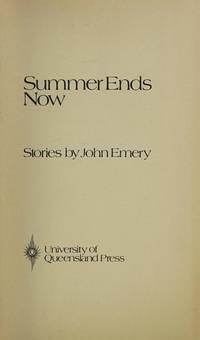
- Free Article: No
- Contents Category: Poetry
- Review Article: Yes
- Article Title: Worlds of Love and Violence
- Online Only: No
- Custom Highlight Text:
Rae Desmond Jones has joined the growing band of poets now working in the more expansive medium of prose diction (thereby possibly expanding their readership as well). Others that come to mind are David Malouf, Roger McDonald, and Rodney Hall.
At just 74 pages, Rae Desmond Jones’s first story collection gives the impression of being a slim volume. The contents page lists only ten stories. Yet this impression is deceptive. There are actually twelve stories (inexplicably, two aren’t listed in the contents), and the usual typography concentrates the prose, emphasizing its density and the sense of menace underlying the narratives.
- Book 1 Title: Walking the Line
- Book 1 Biblio: Red Press, 47 pp
- Book 1 Cover Small (400 x 600):

- Book 1 Cover (800 x 1200):

- Book 2 Title: Summer Ends Now
- Book 2 Biblio: University of Queensland Press, 164 pp
- Book 2 Cover Small (400 x 600):

- Book 2 Cover (800 x 1200):

The text is set entirely in lower-case, apart from some ominous noises and significant headlines which are capitalized. The overall design of the book also meets the demands of the author’s style: tight line spacing and the rather square shape make each page feel as solid as a block of steel. Which is perhaps intentional since the three central stories – ‘blue moon’, ‘fatso’, and ‘the singer’ – are powerfully welded together by their common setting (a steelworks town) and by the enigmatic presence of the narrator. Like the steelworks, he takes a part in but remains untouched by the dramas around him.
Petty theft, half-hearted assault, adultery, incest – the dramas played out are coarse and sad, or malevolently farcical. There’s ross, who ‘didn’t care that i was getting into bed with his sister. he was fucking their father’s ex-mistress anyway’. But these sharply silhouetted characters, and their lusts, are controlled by the rhythm and needs of the steelworks:
… the venetian blinds were angled so the lights flickered & dimmed in white stripes across her face & bedclothes. at night the electric furnace built up an arc & dragged on the town’s electricity supply, making the lights in town dim momentarily… ross & rosie came through the door quietly & naturally without clothes on, & began to fuck next to us on top of a pile of clothes. i tried to force them out, i wanted this whatever it was all to myself, i told them to piss off but ross yelled ride ‘em cowboy & whacked my bare arse with his open hand. dot didn’t mind. she pushed out her tongue as i could feel the tortured held-in fire from the blast furnaces creeping through the centre of every light pole in town…
This book is a major contribution to Australian short fiction, worth having for the steelworks sequence alone, though other stories are equally impressive. ‘the 4.27 from wollongong’ is a polished story-within-a-story and the elegant ‘memoirs of my life with rock n’ roll idol alan kay’ sustains a fine tension between threat and vulnerability. It’s hard to believe Rae Desmond Jones can pack so much into his brief stories, and keep them entertaining and readable at the same time.
John Emery is another talented writer whose first collection Summer Ends Now Is shows why he has won a number of national short story competitions. His book is also important for its stylistic achievements, and for its surprising range of characters and situations.
There are experimental pieces, where he makes clever use of structure and rhythm, as well as more traditional ‘socialist realist’ stories. There’s also a light sprinkling of science fiction tales, like ‘Tourists’ and ‘In the Morning’, reveal the same sort of talent that Peter Carey has for tilting the present very slightly to produce a striking effect.
John Emery’s characters include children and adolescents, building workers, the unemployed, blacks, migrants, footballers, the old and dying. In a number of sensitive pieces, looked at from a child’s viewpoint, the adult world is seen as incomprehensible and violent. And the various stories do contain a lot of violence, from road accidents and warfare to rape and political repression. None of this however is gratuitous. It is all handled skilfully and with narrative purpose, and can even be humorous as in the jauntily comic ‘Pine Gap’, one of the best stories in the collection.
Most of Emery’s stories are located away from cities – at construction sites in the bush, in small towns, or just on the way to somewhere else – and this gives the book something of an exotic quality. The story ‘Country Music’, in particular, is a marvellously evocative picture of a country show. Like Rae Desmond Jones, Emery blends song lyrics with the action to heighten dramatic colouring.
Emery also effectively dramatizes some important contemporary social problems, and if his diverse story collection has a message it’s this one, conveyed with unconscious irony by a young itinerant looking for work: ‘If you don’t give in, it’s a good life.’


Comments powered by CComment